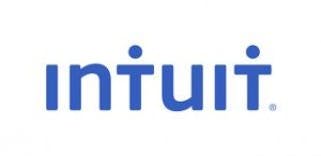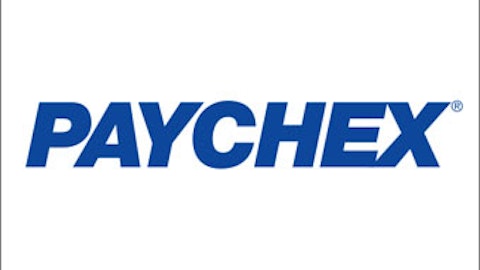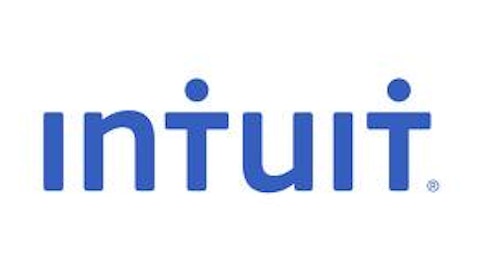Three companies that will benefit from the increasing demand to file taxes electronically include Intuit, Inc. (NASDAQ:INTU), H&R Block, Inc. (NYSE:HRB), and Blucora Inc (NASDAQ:BCOR). Importantly, these companies have little international competition as they operate in a highly regulated industry – taxation.

Valuation and fundamentals
Intuit, Inc. (NASDAQ:INTU), H&R Block, and Blucora Inc (NASDAQ:BCOR) (formerly InfoSpace) have 296.4 million, 271.3 million and 40.7 million shares outstanding, respectively. The table below compares some major valuation and fundamental measures of these three companies and the S&P 500.
| INTU | HRB | BCOR | S&P 500 | |
| Market capitalization | $19.6B | $6.9B | $0.6B | $13,500B |
| Enterprise value [EV] | $19.1B | $7.0B | $0.5B | n/a |
| EBITDA Margin | 30.0% | 25.1% | 17.5% | 20.5% |
| Beta | 0.7 | 0.6 | 1.1 | 1 |
| PE ratio (est. current fiscal year) | 19 | 14.9 | 15.7 | 13.8 |
| Fiscal year-end | 07/31/13 | 04/30/13 | 12/31/12 | n/a |
| PEG ratio | 1.9 | 1.3 | 0.3 | 1.7 |
| Dividend yield | 1.0% | 3.2% | nil | 2.3% |
| EV/EBITDA | 14.6 | 9.2 | 7.5 | n/a |
| Price-to-book value | 6.9 | 7.5 | 1.6 | 6.5 |
| Price-to-sales | 4.6 | 2.3 | 1.7 | 1.4 |
| Price-to-CFO | 16.3 | 18.2 | 13 | n/a |
| 1-Year total return | 16.5% | 57.0% | 29.3% | 11.8% |
| Employees (recent fiscal year-end) | 8,500 | 2,500* | 198 | n/a |
Source: Thomson Reuters, SEC Filings, Capital IQ, author’s calculations; EBITDA – earnings before interest, tax, depreciation, and amortization; PEG – price-to-earnings-to-growth; CFO – cash flow from operations; *excludes seasonal employees.
It seems from the above table that Blucora Inc (NASDAQ:BCOR) is the most appealing investment based on the company’s PEG, EV/EBITDA, price-to-book value, price-to-sales, and price-to-CFO ratios. Blucora has two major segments – its legacy search engine business and the tax software service, TaxACT. Blucora acquired TaxACT in early 2012 for $287.5 million in cash. For the first nine months of 2012, Blucora revenue from the search engine business were 80% of total revenue with the remaining 20% of revenue from tax preparation. Interestingly, the tax software provided 43% of the company’s operating income while search contributed 57%. While TaxACT is a smaller (in revenue) it contributes almost equally to Blucora’s bottom line.
Somewhat troubling is the decrease in revenue for TaxACT. For example, according to documents filed by Blucora with the SEC, when it acquired TaxACT, TaxACT had $78 million in revenue for the twelve months ending Sept. 30, 2011. This is considerably higher than the TaxACT revenue for the nine months ending Sept. 30, 2012 of $61 million. While the former period includes an extra three months, TaxACT has almost minimal revenues in the last three months of the year as most tax activity has concluded by that time. The reasons could be that most acquisition have a bumpy start among operational and competitive problems.
Intuit, Inc. (NASDAQ:INTU) and H&R Block, Inc. (NYSE:HRB) shares are not as attractively priced based on PEG, EV/EBITDA, price-to-book value, price-to-sales, and price-to-CFO ratios. However, they have EBITDA margins that are superior to that of Blucora. Intuit, Inc. (NASDAQ:INTU) sells primarily tax (Turbo Tax), accounting software (QuickBooks), and financial services (Mint and Quicken) while H&R Block offers primarily tax services and software and operates brick and mortar branches.





